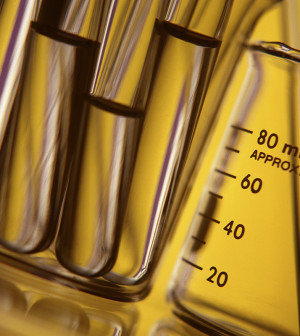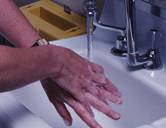- Could Your Grocery Store Meat Be Causing Recurring UTIs?
- Are You Making This Expensive Thermostat Error This Winter?
- Recognizing the Signs of Hypothyroidism
- 10 Strategies to Overcome Insomnia
- Could Artificial Sweeteners Be Aging the Brain Faster?
- Techniques for Soothing Your Nervous System
- Does the Water in Your House Smell Funny? Here’s Why
- Can a Daily Dose of Apple Cider Vinegar Actually Aid Weight Loss?
- 6 Health Beverages That Can Actually Spike Your Blood Sugar
- Treatment Options for Social Anxiety Disorder
Many Anesthesiologists Fail to Wash Hands, Study Shows


Anesthesiologists may need to improve their hand hygiene habits during surgery, because they might be putting patients at risk for infections, a new study suggests.
Researchers observed anesthesiologists during operations and found that they had an average of 149 “hand hygiene opportunities” per hour of patient anesthesia time.
There are five hand hygiene opportunities that help reduce the risk of health care-associated infections, according to the World Health Organization. They are: before touching a patient; before a clean procedure; after exposure to body fluids; after touching a patient; after touching a patient’s surroundings.
Anesthesiologists were least likely to properly clean their hands during the first and last 20 minutes of patient anesthesia, which corresponds with sharp increases in bacterial contamination of the 20 most frequently touched objects during these same time periods.
The Dartmouth-Hitchcock Medical Center researchers also found that anesthesiologists were least likely to properly clean their hands immediately before patient contact and after contact with the patient’s surroundings, and most likely to properly clean their hands after potential exposure to body fluids.
“New methods to reduce bacterial contamination of the anesthesia work environment are needed to prevent health care-associated infections,” concluded the authors of the study published in the July issue of the American Journal of Infection Control.
Infections that occur after surgery are a common type of healthcare-associated infections. There are about 157,000 surgical site infections in the United States each year, according to the U.S> Centers for Disease Control and Prevention.
More information
The U.S. Centers for Disease Control and Prevention has more about health care-associated infections.
Source: HealthDay
Copyright © 2026 HealthDay. All rights reserved.










